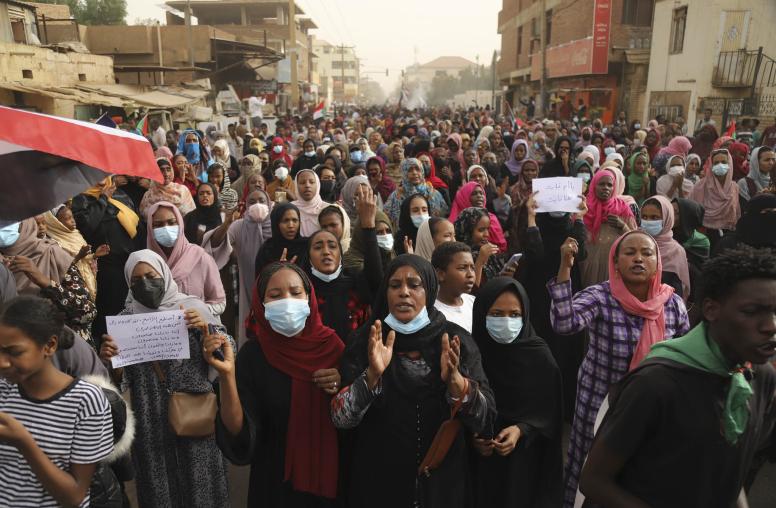‘People Power’ and Peacebuilding: Can They Collaborate?
How Nonviolent Movements and Conflict Resolution Experts Can Work Better Together
Read the event coverageIn recent years, nonviolent movements have filled streets and dramatized crises to force political and social change from Tunisia and Egypt to Nepal or Liberia. Such civil resistance campaigns inevitably will need skills—of dialogue and negotiation—that are honed and taught by practitioners of peacebuilding. After decades in which the fields of nonviolent action and conflict resolution have evolved separately, new reports underscore that they need to collaborate to prevent social conflicts from turning violent and to build more inclusive societies. On July 26, USIP and its partners reviewed this research and discussed how these distinct paths for seeking sustainable peace can be better combined.
The disciplines of peacebuilding and civil resistance use distinct approaches. Practitioners of conflict resolution seek to ease crises and tension through dialogue. Yet as Dr. Martin Luther King wrote from a Birmingham jail in 1963, if those who wield power refuse to negotiate, powerless groups might first have to use nonviolent action to build crises and force such dialogue.
The July 26 discussion considered two reports that highlight the need for collaboration between the fields of nonviolent action and peacebuilding. In “Negotiating Civil Resistance,” scholars Anthony Wanis- St. John and Noah Rosen explore elements shared by theories of nonviolence and of negotiation. In “Powering to Peace: Civil Resistance and Peacebuilding Strategies,” scholar-activist Véronique Dudouet of the Berlin-based Berghof Foundation explores complementary approaches of civil resistance and peacebuilding for conflict transformation and the pursuit of just peace.
This event was co-sponsored by the International Center on Nonviolent Conflict, a Washington-based foundation that develops knowledge and promotes the practice of civil resistance, and by the Alliance for Peacebuilding, a network of more than 100 organizations working to resolve conflict and create sustainable peace.
Continue the conversation on Twitter with #PeoplePowerPeace.
Speakers
Carla Koppell, Opening Remarks
Vice President, Applied Conflict Transformation, U.S. Institute of Peace
Anthony Wanis-St. John
Associate Professor, School of International Service, American University
Véronique Dudouet
Program Director, Conflict Transformation Research, Berghof Foundation; Member of ICNC Academic Council
Abdallah Hendawy
Egyptian activist and political commentator; consultant, Program on Nonviolent Action, U.S. Institute of Peace
Jitman Basnet
Nepali Journalist/Lawyer and Former Prisoner of Conscience
Maria J. Stephan, Moderator
Director, Program on Nonviolent Action, U.S. Institute of Peace


